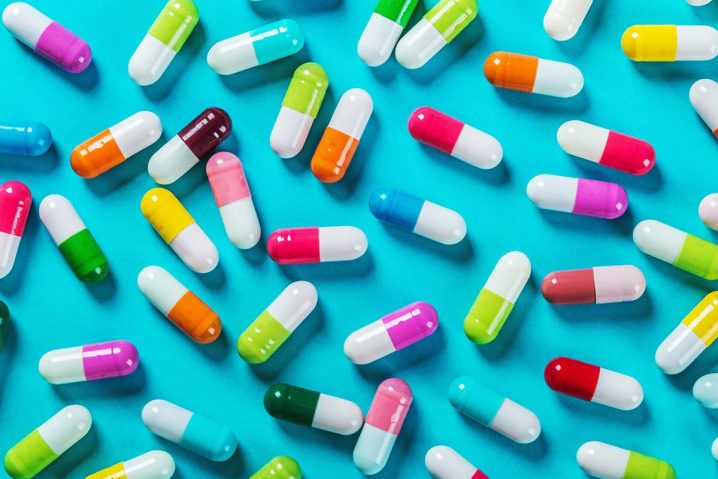In the world of prescription medications, so many people tend to mix substances without realizing the side effects of doing so. Among some of the most dangerous combinations is the practice of mixing Prozac and Adderall. Both can help with different behavioral problems, but both can lead to fatal consequences when combined. If you or someone you know is routinely mixing prescription medications, it is important to learn more about drug addiction treatment in Florida and seek out help.
What is Prozac?
Prozac is one of the most popular brand names for fluoxetine. It works by reuptake serotonin in the brain to increase its effects. Prozac can help with depression, panic disorder, obsessive-compulsive disorder (OCD), bulimia, eating disorders, and other psychiatric disorders.
What is Adderall?
Adderall is a prescription stimulant medication under the category of stimulants. It operates similarly to other addictive drugs like meth. Adderall increases dopamine and norepinephrine levels in the central nervous system. Indeed, most doctors prescribe Adderall to treat attention deficit hyperactivity disorder (ADHD) and narcolepsy. However, some people fake symptoms to get prescription medication.
How Dangerous is Mixing Prozac and Adderall?
The active components in Prozac and Adderall have major drug interactions. When people mix fluoxetine (Prozac) and amphetamines or dextroamphetamine (Adderall), the adverse effects can be catastrophic.
Adderall is a stimulant, but its chemical makeup interacts with the chemical pathway of Prozac and vice versa. The danger of mixing Prozac and Adderall is that they sort of null each other. So, when people combine these drugs, Prozac blocks amphetamines and makes it a lot easier for people to overdose.
Side effects of this combination include:
- Anxiety or nervousness
- Becoming jittery or restless
- Increased risk of developing serotonin syndrome
What Is Serotonin Syndrome?
Serotonin syndrome is a very serious drug reaction that is caused by certain medications and results in built-up and highly elevated levels of serotonin in the body. This can happen quickly, within 24 hours after starting or increasing a medication dosage, and sometimes in as few as six hours. Symptoms for mild syndrome can go away on their own 24-72 hours after the medication stops being taken, but in extreme cases, there is a more significant risk of lasting issues. Symptoms of serotonin syndrome can also, at times, be misdiagnosed as something else, so it is important to be upfront with your doctor about prescription drug abuse or medications you are taking only exactly as prescribed.
Signs and symptoms of serotonin syndrome include:
- Agitation or restlessness
- Confusion
- Insomnia
- High blood pressure
- Rapid heart rate
- Loss of muscle coordination or twitching muscles
- Dilated pupils
- Muscle stiffness
- Heavy sweating
- Diarrhea or vomiting
- Headache
- Shivering and goosebumps
Severe serotonin syndrome can be dangerous and life-threatening. Some additional signs and symptoms to look out for are:
- A high fever
- Irregular heartbeat
- Tremor or seizures
- Loss of consciousness
Please seek emergency medical treatment if you think you are experiencing severe symptoms of serotonin syndrome after starting a new medication or abusing prescription drugs.
Polysubstance Abuse Treatment Options
Polysubstance abuse is a unique issue that often involves a substance use disorder with a mental health condition. Unfortunately, it wasn’t until recently that most rehab centers started to treat these conditions simultaneously. The level of depressive and somatic symptoms of polysubstance users indicates a need for mental health screening before treating addiction. A comprehensive treatment plan needs to incorporate different treatment modalities and approaches to addressing polysubstance abuse as a whole.
Drug and Alcohol Detox
The first step toward recovery is detox. When people start mixing Prozac and Adderall, attempting to quit independently, they can experience side effects that can be life-threatening. To avoid overdose and fatal withdrawal symptoms like seizures, checking into a detox rehab center is paramount. With supervision from a medical professional, recovering drug addicts can have a better chance of sobriety.
Drug and Alcohol Rehab
After detox, most patients will move to an inpatient treatment program that offers structure and support 24/7. Others, primarily those with less severe addictions, might be able to choose an intensive outpatient program that provides more flexibility so that they can continue daily responsibilities like work, school, and family.
Aftercare Recovery Programs
Unfortunately, addiction is a life-long condition. Aftercare recovery programs offer continuing support once people leave a rehab facility. Here, patients focus on building life development skills that help them integrate back into society. Most people keep working on relapse prevention coping mechanisms to sustain long-term sobriety.
Seek Addiction Help at Lighthouse Recovery Institute Today
If you or someone you know is struggling with substance abuse disorders, please contact us today. Whether that involves a complete drug and alcohol detox process, intensive outpatient treatment, or continuous aftercare support, we’ll do everything in our power to help you beat this chronic disease.
If you know someone who’s mixing Prozac and Adderall, reach out to them and see if they’re ready to get help for their addiction. Also, if you need help setting up an intervention, our addiction specialists can offer counsel and guidance. We are here to help.
At Lighthouse Recovery Institute, our addiction specialists can help you find the best treatment program for your unique needs. Besides, we don’t believe in cookie-cutter treatment plans, which is why we look at each case on an individual basis and do our absolute best to accommodate your needs to help your recovery journey. Contact us at 866.308.2090 today.





